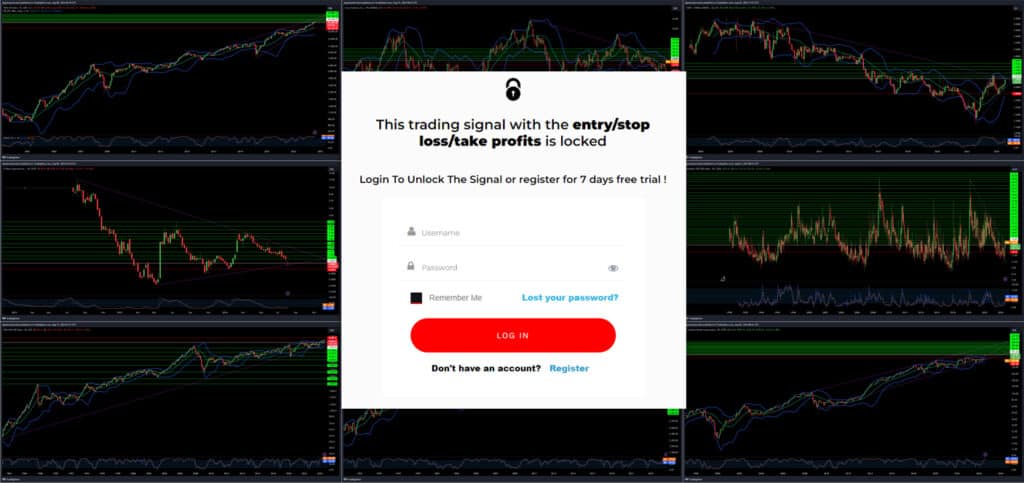CFD (Contract for Difference) trading is a popular derivative that enables traders to speculate on the price movements of various assets without owning them. However, to ensure a fair and transparent trading environment, CFD trading is subject to regulations and compliance measures.
In this guide, I will provide you with essential information on CFD trading regulations and compliance, helping you navigate the complexities of the financial markets with confidence. Understanding these regulations is crucial for traders to operate within the bounds of the law and protect themselves from fraudulent activities.
Key Takeaways:
- CFD trading is subject to regulations and compliance measures to ensure fair and transparent trading practices.
- Regulatory bodies, such as the Financial Conduct Authority (FCA) and the Securities and Exchange Commission (SEC), impose rules and guidelines to protect investors.
- Compliance requirements may include risk disclosure, Know Your Customer (KYC) procedures, and transparent pricing policies.
- Trading with regulated brokers offers investor protection and access to dispute resolution mechanisms.
- Stay informed about changes in the regulatory landscape and choose regulated brokers for a safe CFD trading experience.
Understanding CFD Trading Regulations
CFD trading regulations play a vital role in ensuring fair and transparent practices in the financial markets. These regulations vary across different countries and jurisdictions, and it is crucial for traders to be aware of the specific rules governing CFD trading in their location. Regulatory bodies, such as the Financial Conduct Authority (FCA) in the UK and the Securities and Exchange Commission (SEC) in the US, enforce these regulations to protect investors and maintain market integrity.
Some key areas covered by CFD trading regulations include:
- Client Fund Protection: Regulatory bodies impose rules to protect client funds, ensuring they are segregated from the broker’s own funds. This helps safeguard client funds in the event of a broker’s insolvency.
- Leverage Limits: Regulations may restrict the maximum leverage that traders can utilize when trading CFDs. This measure aims to limit the potential risks associated with high leverage.
- Disclosure of Risks: Brokers are required to provide clear and comprehensive risk disclosures to clients, highlighting the potential risks involved in CFD trading.
- Conflict of Interest Avoidance: Regulatory bodies establish guidelines to prevent and manage conflicts of interest between brokers and their clients, ensuring fair treatment and transparency.
Traders should take the time to understand and comply with the relevant CFD trading regulations in their jurisdiction. This ensures not only adherence to the law but also provides traders with a sense of security and confidence in their trading activities.
Regulatory bodies such as the FCA and SEC play a crucial role in overseeing CFD trading and ensuring market integrity. By complying with the regulations set forth by these regulatory bodies, traders can trade confidently, knowing that their interests are protected.
In the next section, we will explore the key compliance requirements for CFD trading, including risk disclosure and the Know Your Customer (KYC) procedures that brokers must follow to verify client identities and suitability for trading.
Key Compliance Requirements for CFD Trading
Compliance requirements play a crucial role in ensuring fair and transparent CFD trading practices. Traders should be aware of the key compliance measures that brokers must adhere to in order to protect their interests. Here are some important compliance requirements for CFD trading:
Risk Disclosure Statements
One of the key compliance requirements is the provision of risk disclosure statements by brokers to their clients. These statements outline the potential risks associated with trading CFDs, ensuring that clients are fully informed before making investment decisions. It is important for traders to carefully read and understand these risk disclosure statements to make informed trading choices.
Know Your Customer (KYC) Procedures
To maintain regulatory compliance, brokers are often required to implement Know Your Customer (KYC) procedures. KYC procedures involve verifying the identity and suitability of clients to ensure that they meet the necessary eligibility criteria for trading CFDs. By conducting KYC checks, brokers can prevent fraudulent activities and promote a safe trading environment.
Regular Reporting and Record-Keeping
Compliance with CFD trading regulations may also involve regular reporting to regulatory authorities. Brokers are required to maintain records of client transactions, account balances, and other relevant information. This ensures transparency and accountability in the trading process, facilitating effective regulatory oversight.
Separate Client Funds
In compliance with regulations, brokers are typically required to keep client funds in separate accounts from their own operational funds. This segregation of client funds provides an added layer of protection, reducing the risk of misappropriation or misuse of funds. Traders can have peace of mind knowing that their funds are kept separate and secure.
Transparent Pricing and Execution Policies
Compliance requirements also include transparent pricing and execution policies. Brokers must provide clear and accurate information about prices, fees, and charges associated with trading CFDs. This transparency allows traders to make well-informed decisions and ensures that they are treated fairly in the execution of their trades.
Traders should prioritize trading with regulated brokers who adhere to these compliance requirements. By doing so, they can protect their interests, mitigate risks, and trade in a secure and transparent environment.
Benefits of Trading with Regulated Brokers
When it comes to CFD trading, choosing a regulated broker can make all the difference. Trading with regulated brokers offers several benefits that can help protect investors and provide peace of mind. Let’s explore the advantages of trading with regulated brokers:
1. Investor Protection
Regulated brokers are required to adhere to strict compliance standards set by regulatory bodies. This ensures that they operate in a transparent and fair manner, safeguarding the interests of traders. These compliance standards may include measures like client fund segregation, which separates traders’ funds from the broker’s own funds. This provides an additional layer of protection and prevents the misuse of funds.
2. Access to Dispute Resolution Mechanisms
In the event of any disputes or complaints, regulated brokers provide channels for resolution, such as mediation or arbitration. These mechanisms offer a fair and impartial way to address any issues that may arise between traders and brokers. Having access to dispute resolution mechanisms can help traders seek justice and protect their rights.
3. Maintaining Adequate Capital Reserves
Regulated brokers are often required to maintain adequate capital reserves. This means that they have enough funds to cover their obligations towards traders even in challenging market conditions. The presence of sufficient capital reserves offers an added layer of security for traders’ funds and reduces the risk of financial instability.
By trading with regulated brokers, traders can benefit from enhanced investor protection, access to dispute resolution mechanisms, and the peace of mind that comes with dealing with a reputable and compliant entity. It is highly recommended that traders choose regulated brokers to mitigate the risks associated with CFD trading.
Continue reading to learn more about the importance of compliance and regulations in CFD trading and how they can safeguard your financial interests.
Conclusion
Compliance with CFD trading regulations is paramount in ensuring a safe and secure trading experience in the financial markets. By fully understanding and adhering to the applicable regulations, traders can protect themselves from fraudulent activities and navigate the complexities of CFD trading with confidence.
Staying informed about the ever-evolving regulatory landscape is crucial to maintaining ongoing compliance. Changes in regulations can have a significant impact on trading practices and risk management strategies. Therefore, it is important to regularly update and educate oneself to ensure compliance with the latest requirements.
One of the fundamental aspects of compliance is choosing regulated brokers. Trading with regulated brokers not only provides investor protection but also access to dispute resolution mechanisms. Regulated brokers adhere to strict compliance standards, ensuring fair trading practices and safeguarding traders’ interests.
To create a safe and secure CFD trading experience, it is essential to familiarize oneself with the compliance requirements specific to one’s jurisdiction. This includes understanding risk disclosure statements, fulfilling Know Your Customer (KYC) procedures, and trading with brokers who maintain client funds in separate accounts. By doing so, traders can mitigate risks associated with CFD trading and trade with confidence in the financial markets.
FAQ
What is CFD trading?
CFD trading is a financial derivative that allows traders to speculate on the price movements of various assets without owning them.
What are CFD trading regulations?
CFD trading regulations are rules and guidelines imposed by regulatory bodies to protect investors and maintain the integrity of the financial markets.
Which regulatory bodies oversee CFD trading?
Regulatory bodies such as the FCA in the UK and the SEC in the US oversee CFD trading and enforce compliance with regulations.
What are the compliance requirements in CFD trading?
Compliance requirements in CFD trading include risk disclosure, Know Your Customer (KYC) procedures, reporting to regulatory authorities, and transparent pricing policies.
Why should I trade with regulated brokers?
Trading with regulated brokers offers benefits such as investor protection, access to dispute resolution mechanisms, and the security of funds.
How can I ensure compliance with CFD trading regulations?
To ensure compliance, it is important to choose regulated brokers and stay informed about the specific regulations in your jurisdiction.
What steps should I take to protect myself from fraudulent activities?
By understanding and adhering to applicable regulations, you can protect yourself from fraudulent activities in CFD trading.
Source Links
- https://www.sharecast.com/news/Mergers-Acquisitions-and-Disposals/Form-8-3-Belvoir-Group–dl34020415.html
- https://www.miamiherald.com/software-business/article284106573.html
Disclaimer
All information on this website is of a general nature. The information is not adapted to conditions that are specific to your person or entity. The information provided can not be considered as personal, professional or legal advice or investment advice to the user.
This website and all information is intended for educational purposes only and does not give financial advice. Signal Mastermind Signals is not a service to provide legal and financial advice; any information provided here is only the personal opinion of the author (not advice or financial advice in any sense, and in the sense of any act, ordinance or law of any country) and must not be used for financial activities. Signal Mastermind Signals does not offer, operate or provide financial, brokerage, commercial or investment services and is not a financial advisor. Rather, Signal Mastermind Signals is an educational site and a platform for exchanging Forex information. Whenever information is disclosed, whether express or implied, about profit or revenue, it is not a guarantee. No method or trading system ensures that it will generate a profit, so always remember that trade can lead to a loss. Trading responsibility, whether resulting in profits or losses, is yours and you must agree not to hold Signal Mastermind Signals or other information providers that are responsible in any way whatsoever. The use of the system means that the user accepts Disclaimer and Terms of Use.
Signal Mastermind Signals is not represented as a registered investment consultant or brokerage dealer nor offers to buy or sell any of the financial instruments mentioned in the service offered.
While Signal Mastermind Signals believes that the content provided is accurate, there are no explicit or implied warranties of accuracy. The information provided is believed to be reliable; Signal Mastermind Signals does not guarantee the accuracy or completeness of the information provided. Third parties refer to Signal Mastermind Signals to provide technology and information if a third party fails, and then there is a risk that the information may be delayed or not delivered at all.
All information and comments contained on this website, including but not limited to, opinions, analyzes, news, prices, research, and general, do not constitute investment advice or an invitation to buy or sell any type of instrument. Signal Mastermind Signals assumes no responsibility for any loss or damage that may result, directly or indirectly, from the use or dependence on such information.
All information contained on this web site is a personal opinion or belief of the author. None of these data is a recommendation or financial advice in any sense, also within the meaning of any commercial act or law. Writers, publishers and affiliates of Signal Mastermind Signals are not responsible for your trading in any way.
The information and opinions contained in the site are provided for information only and for educational reasons, should never be considered as direct or indirect advice to open a trading account and / or invest money in Forex trading with any Forex company . Signal Mastermind Signals assumes no responsibility for any decisions taken by the user to create a merchant account with any of the brokers listed on this website. Anyone who decides to set up a trading account or use the services, free of charge or paid, to any of the Broker companies mentioned on this website, bears full responsibility for their actions.
Any institution that offers a service and is listed on this website, including forex brokers, financial companies and other institutions, is present only for informational purposes. All ratings, ratings, banners, reviews, or other information found for any of the above-mentioned institutions are provided in a strictly objective manner and according to the best possible reflection of the materials on the official website of the company.
Forex/CFD trading is potentially high risk and may not be suitable for all investors. The high level of leverage can work both for and against traders. Before each Forex/CFD investment, you should carefully consider your goals, past experience and risk level. The opinions and data contained on this site should not be considered as suggestions or advice for the sale or purchase of currency or other instruments. Past results do not show or guarantee future results.
Neither Signal Mastermind Signals nor its affiliates ensure the accuracy of the content provided on this Site. You explicitly agree that viewing, visiting or using this website is at your own risk.




